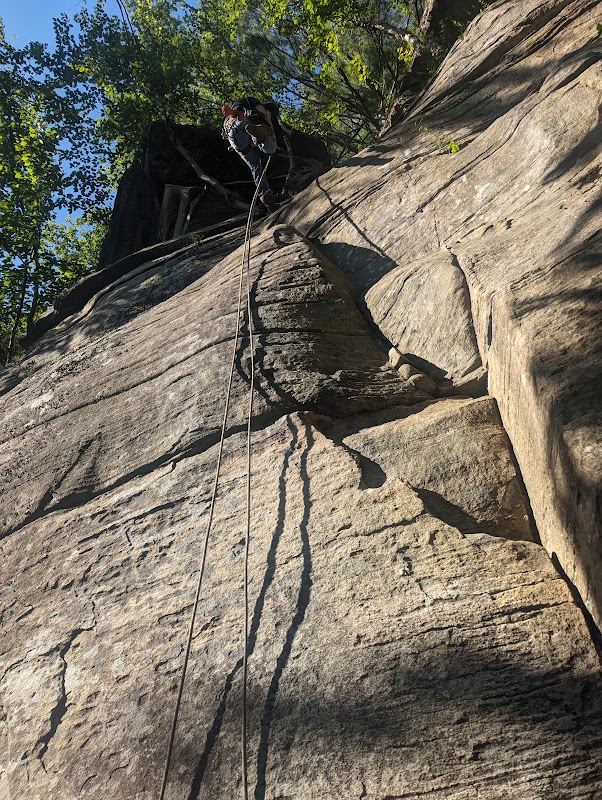
Summit Mount Monadnock: New Hampshire’s Gateway to Endless Vistas
Mount Monadnock offers an invigorating hike with panoramic views that reward every step. From forest trails to exposed granite summits, this New Hampshire peak invites adventurers to immerse themselves in rugged beauty while preparing for a spirited climb.
Start Early for Cooler Temperatures
Begin your hike at dawn or early morning to avoid afternoon heat and crowds, making your ascent more comfortable and your summit time peaceful.
Hydrate Generously
Carry at least two liters of water, as the climb, especially the exposed summit, can quickly dehydrate you even in cooler weather.
Use Proper Footwear
Wear hiking boots or shoes with strong grip—granite slabs and rocky sections demand traction and ankle support to prevent slips.
Check Weather Before You Go
Summit conditions can change rapidly; avoid hiking in storms and be prepared with windproof layers for cooler, windy peak exposure.
Summit Mount Monadnock: New Hampshire’s Gateway to Endless Vistas
Mount Monadnock, rising 3,165 feet above Jaffrey, New Hampshire, stands as one of the most accessible yet rewarding climbs in New England. The summit reveals unbroken panoramas stretching beyond the White Mountains to the Green Mountains of Vermont and the distant Berkshires in Massachusetts. This hike offers more than just elevated views; it’s an engagement with a mountain fiercely itself, challenging your stamina and inviting you to move deliberately through its diverse terrain.
Start your ascent on well-marked trails winding through thick forests where hardwoods dare you forward beneath their swaying limbs. The solid rock beneath your feet changes as you near the summit, shifting from soft leaf litter to exposed granite slabs that have weathered countless seasons. These boulders aren’t just obstacles—they’re ancient sentinels, holding steady as you climb toward the wind-sculpted peak.
Popular routes like the White Dot Trail present a 2.2-mile ascent with roughly 1,700 feet of elevation gain. The trail balances steady climbs with occasional steeper scrambles that demand sure footing and careful attention to footing. Throughout the hike, the mountain’s character shifts—from shaded woods where the air is cool and damp, to exposed ridges where the breeze pushes you onward and the landscape below unfolds in layers of forest and open fields.
Timing your hike is key. Early morning starts not only beat the crowd but bring crisp light that enhances the vistas and cools the exertion. Carry at least two liters of water; the effort, particularly under a sunny sky, will demand hydration. Footwear with solid grip is essential—the granite slabs can turn slick when wet or icy. A lightweight jacket is advisable even in summer, as wind near the summit can chill unexpectedly.
At the top, the summit’s open ledges offer more than a view—they invite reflection on the mountain’s resolute presence. Take a moment to scan the horizon, where you’ll spot familiar ranges and feel connected both to the landscape and to the hikers who’ve carried their steps to these heights before you.
Planning your hike with realistic preparation transforms the experience from a mere trek to an authentic adventure. Respect the mountain’s rhythms, move steadily, and embrace the mountain’s challenge. Mount Monadnock is less about conquering and more about engaging with a mountain that remains fiercely itself. Each step is an invitation to connect—body, mind, and nature—all at once.
Nearby Trips
All Adventures
Boat Charters
Water Activities
Adventures near Keene, New Hampshire
Discover the unique and memorable adventures that make Keene, New Hampshire special.
Frequently Asked Questions
How long does it take to hike Mount Monadnock?
Most hikers complete the hike in 3 to 5 hours round trip depending on fitness and chosen route. Faster hikers may take less time, but factor in breaks for summit views.
What is the best trail for a beginner?
The White Dot Trail is a popular choice with a clear path and moderate difficulty. It’s well-maintained and offers a straightforward route to the summit.
Is Mount Monadnock pet-friendly?
Yes, dogs are welcome but must be leashed. Keep in mind the rocky terrain can be tough on paws, and water availability is limited, so bring water for your pet.
Are there facilities at the trailhead?
The Monadnock State Park trailhead offers parking, restrooms, and informational signage. Early arrival is recommended during weekends and peak seasons to secure parking.
Can I hike Mount Monadnock year-round?
Yes, but winter conditions require experience with snow and ice traction gear. Summer to fall offers the most stable and accessible conditions for most hikers.
What wildlife might be encountered on the trail?
Hikers may see white-tailed deer, chipmunks, and a variety of birds including hawks and woodpeckers. Black bears are present but encounters are rare and usually avoidant.
Recommended Gear
Sturdy Hiking Boots
Provide grip and ankle support essential for rocky and sometimes slippery granite surfaces.
Hydration System or Water Bottles
Maintaining hydration is critical; water sources on the trail are limited and unreliable.
Layered Clothing with Wind Jacket
Layers allow temperature regulation; windproof jackets protect against chilling gusts near the summit.
Trekking Poles
Offer stability on steep sections and aid balance on uneven granite but are optional based on personal preference.
Local Insights
Hidden Gems
- "The Little Monadnock Trail offers quieter views and a peaceful forest experience lower down the mountain."
- "Rattlesnake Mountain nearby features less crowded trails with unique rock formations."
Wildlife
- "Look for peregrine falcons nesting near summit cliffs in spring and early summer."
- "Listen for the distinct calls of wood thrushes and ovenbirds in the forested sections."
History
"Mount Monadnock has long been a favored spot for Native American use and later inspired transcendentalist writers like Emerson and Thoreau, who saw it as a symbol of enduring wilderness."
